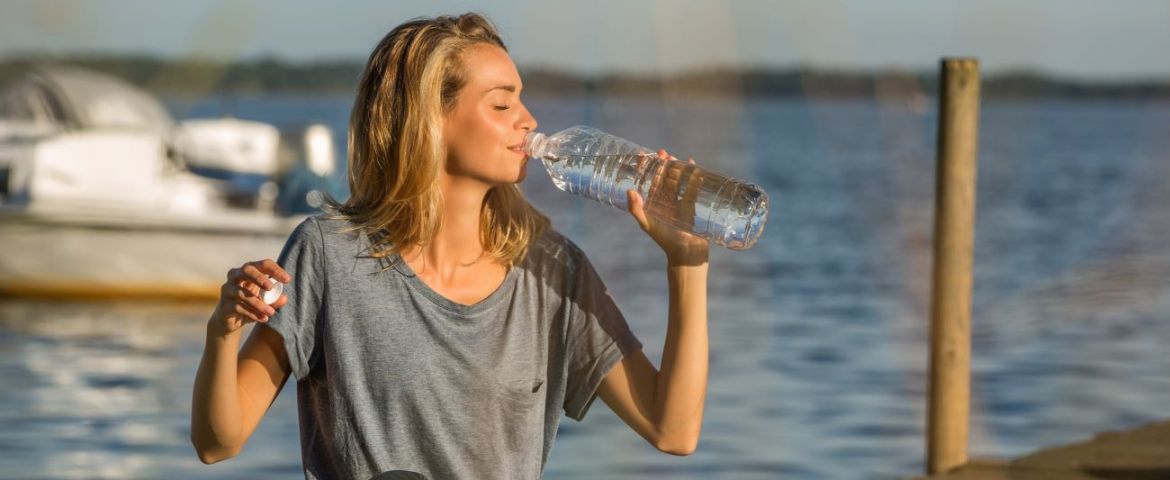Summer is in full swing which means shorts, tank tops, street fairs, beach days — you get the idea. All of that exposed skin and time out in the sun means Michiganders are keeping busy slathering themselves in sunscreen. And while sunscreen is your best bet to protect your skin from sun damage (along with limiting time in the sun), you shouldn’t forget about sun safety for the rest of your body. So before you head out to enjoy your next outdoor excursion, take some time to brush up on the ways nutrition plays a role in sun safety.
Drink plenty of water.
Being out in the sun and exposed to high temperatures for a long period of time can lead to heat exhaustion and dehydration—both of which can be dangerous. Drink plenty of water to prevent this from happening and to keep your body properly hydrated. The general recommendation is to drink eight 8-ounce glasses of water per day for women and twelve 8-ounce glasses of water per day for men. You should also brush up on the signs and symptoms of heat stroke and exhaustion, just to be safe.
Eat your carrots and leafy greens.
Carrots and leafy greens like kale and spinach are packed with a nutrient called beta carotene, which our bodies convert into vitamin A. Studies show that about 10 weeks of regular supplementation of beta carotene provides a natural sun protection for our skin. Leafy greens are also high in the antioxidants lutein and zeaxanthin, which some studies suggest protect against wrinkling, sun damage and even skin cancer. So, the next time you’re making your morning breakfast smoothie, reach for a handful of leafy greens to complement your fruits—or forego your leftover pizza for a beta carotene-packed kale salad for lunch.
Drink green tea.
Green tea isn’t just delicious; it may also help protect against skin cancer. Green tea leaves are rich in catechins, which can help protect the skin from UV radiation. This antioxidant-heavy drink promotes DNA repair and helps prevent immunosuppression which can lead to skin cancer. Researchers suggest drinking five to six cups per day for significant protective effects against sun damage.
Be cautious while consuming citrus fruits.
Citrus fruits such as lemons, limes, grapefruits and oranges can cause a sun-induced skin sensitivity condition known as phytophotodermatitis when the juice reacts with sunlight on your skin. Symptoms typically do not appear for a few days after exposure, and they can range from mild redness to blisters and second-degree burns — depending on the length of time in the sun and amount of juice that gets on your skin. If you happen to get citrus juice on your skin while out in the sun, immediately wash off residue with soap and water to prevent this type of burn.

Steer clear of certain medications.
Taking certain sun-sensitizing drugs can cause side effects when the individuals taking them are exposed to the sun. The most common type of sun-sensitivity drug reaction is phototoxicity, which can occur when skin is exposed to the sun after medications are injected, taken orally or applied to the skin. The drug absorbs UV light and then releases it into the skin, causing cell death. Some of the most common phototoxic drugs are amiodarone, NSAIDs (nonsteroidal anti-inflammatory drugs such as ibuprofen) and tetracyclines. Read drug labels carefully and talk to your pharmacist or doctor to see if any of your current medications put you at risk for sun sensitivity.
What you put into your body can have a big effect on the outside, especially when it comes to sun safety. Be sure to keep this in mind the next time you make plans for a day in the sun.


